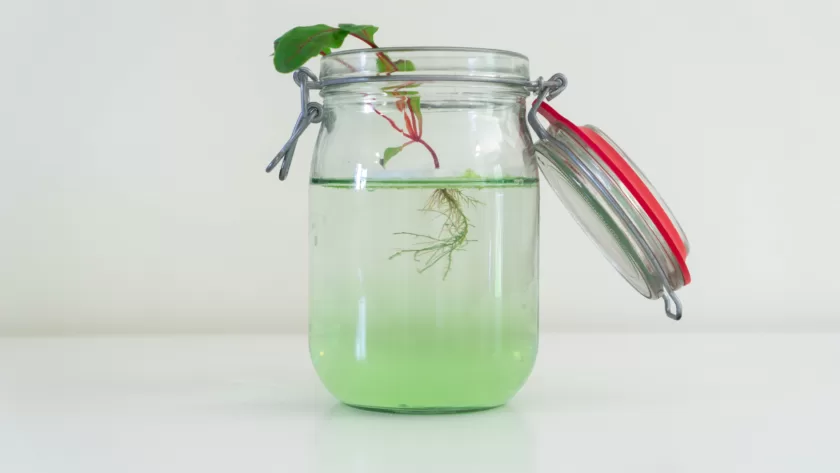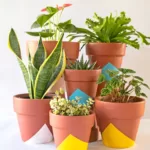As a horticulturist, I’m often asked the same question: is Coke good for plants? It’s an interesting query that has piqued my curiosity since I first heard it. After some research and experimentation, I can safely say there are both positives and negatives to using Coca-Cola as a fertilizer.
In this article, we’ll take a look at how the sweet beverage affects plant growth—and what you need to know about its potential effects on your garden or houseplants. We’ll also explore why so many people have adopted this unconventional gardening technique in recent years. So let’s get started!
It may sound strange (or even humorous), but using soda pop like Coke as a fertilizer isn’t unheard of among keen gardeners and green thumbs alike. Whether it works or not depends largely on the type of plant being grown; while certain varieties thrive with the extra sugar boost, others might be more sensitive to the acidic nature of soft drinks like cola. Let’s dive into all things ‘Coke & plants’ right now…
Definition Of Coke
Ah, Coke. ‘Tis a beverage of the ages! By Coke I mean soda or pop, depending on where you hail from – and in this case, we’re talking about Coca-Cola specifically. For those who weren’t alive to witness its beginnings in 1886, it was developed as an energy booster with added coca leaves (hence part of the name) and kola nuts (the other part). Nowadays however, it’s mostly just high fructose corn syrup and caffeine that makes us all jittery at work.
So then what does one have to do with the other? In terms of horticulture, not much really – unless you are using Coca-Cola as a fertilizer! Fertilizers can come in many forms so let’s take some time to explore the meaning of ‘Coke’ when used for plants. It is simply a term used to describe carbonated sugary drinks like colas, which contain trace amounts of nitrogen, phosphorus, potassium and magnesium – all essential nutrients needed by plants to grow healthy and strong.
To sum up why coke has any relevance here: while it may provide small amounts of beneficial minerals when watered into soil around plants… it also contains lots of sugar which could be detrimental if overused – especially since there are far better sources out there for plant nutrition. So before rushing off to douse your flower bed with cans of Coke, keep reading for an overview of fertilizers more suited for your garden needs!
Overview Of Fertilizers
When it comes to plant nutrition, fertilizers can be a great help. They supplement the nutrients in soil and provide extra nourishment for plants so they can grow strong and healthy. But with all the different fertilizer types on the market, what’s best? Let’s have a look:
- Organic Fertilizers – These are made from natural sources like animal matter or composted plants. They’re slow acting but release nutrients over time which makes them ideal for long-term use.
- Synthetic Fertilizers – These are chemical substances that provide an instant boost of nutrients to your plants. However, synthetic fertilizers don’t improve soil fertility in the long run because their active ingredients quickly wash away with rain or irrigation water.
- Compost Tea – This is one of my favorite methods! You can make it yourself by steeping compost material in water for several days before using it as liquid fertilizer. It provides beneficial microorganisms to your garden which helps promote healthier soils and better nutrient uptake by plants.
- Soil Amendments – Adding things like lime, gypsum or sulfur directly into the soil will adjust its pH level and make other nutrients more available to your plants.
So why should you bother fertilizing at all? Well, improving soil fertility increases root growth and strengthens stems which boosts overall vigor of your plants; plus, adding organic matter also helps retain moisture in sandy soils and improves drainage in clay soils – both of which are essential for optimal growth conditions!
Now armed with this knowledge let’s move on to talk about nutritional benefits for plants!
Nutritional Benefits For Plants
Incredibly, Coke can be beneficial for plants! While it may seem too good to be true, the carbonated beverage does contain some of the essential nutrients that help nourish and sustain plants. As a horticulturist, I’m here to tell you more about the fertilizer benefits that come from using Coca-Cola as an ingredient in your soil fertility and plant health routine.
First off, when used sparingly, Coke contains several important plant nutrients such as zinc, magnesium and phosphorus that are necessary for healthy growth. These vitamins play a crucial role in providing energy to plants by transferring electrons during photosynthesis. Additionally, these minerals act as catalysts which increase nutrient absorption in the roots while also helping with root development.
Moreover, since Coke is acidic – approximately 2 pH levels lower than regular water – it helps make sure there’s enough acidity in the soil so that other valuable ingredients like nitrogen can break down properly and become available to promote better root growth or leaf coloration. When applied correctly through careful dilution of the soda concentrate with water (1:10 ratio) this powerful combination provides an excellent boost of nutrition for any garden or lawn project.
In short, although its use should still remain limited due to potential harmful effects on plants from overuse of sugar and phosphoric acid content found inside colas, adding small doses has been shown to provide amazing results when used responsibly.
Potential Harmful Effects On Plants
Uh oh – looks like the answer to the question of whether Coke is good for plants isn’t looking too promising. While it’s true that Coke has been used as a fertilizer in some cases, there are definite negative effects associated with its use. To begin with, coke contains high amounts of sugar and caffeine, both of which can be extremely harmful to plants if applied in excess or not diluted properly. In addition, the soda also contains carbonic acid, which could potentially damage plant roots and foliage if left on them for too long. Finally, while Coca-Cola may contain trace minerals essential for healthy plant growth, these elements are found in much higher concentrations in other fertilizers such as compost or manure.
So when it comes down to it, using Coke as a fertilizer for your plants should really only be done sparingly and with caution. Fortunately though, there are plenty of alternatives out there that provide all the nutrients necessary for optimal growth without any of the potential risks associated with this sugary beverage! Let’s take a look at our options…
Alternatives To Coke As A Fertilizer
When it comes to fertilizing plants, coke is not the best choice. In fact, there are lots of alternatives that you can use instead! Diatomaceous earth is great for promoting healthy root growth and preventing diseases in soil. Fish emulsion also works wonders when it comes to encouraging your plants’ growth – it’s full of essential nutrients and minerals. Compost tea is another popular option; its rich mixture of beneficial bacteria will give your garden a major boost. Rock phosphate helps with photosynthesis and provides phosphorus to plant roots. And if you’re looking for something more organic, seaweed extract delivers important trace elements while keeping pests at bay.
The key here is finding the right balance between all these different ingredients so your plants get exactly what they need without being overloaded or unbalanced in any way. Knowing how much of each one to add takes research and practice, but once you’ve got it down pat, you’ll be ready to create the perfect fertilizer blend for your growing needs!
Tips For Safe Use Of Coke As Fertilizer
The use of Coke as a plant fertilizer seems like an easy and inexpensive way to provide the essential nutrients that your plants need. However, it’s important to be aware of the potential risks involved in using this method. From over-fertilizing to contamination with other chemicals, there are numerous safety considerations for safely fertilizing your plants with Coke.
When considering whether or not to use Coke as a fertilizer, remember that its carbonated sugar content can lead to excessive sweetness levels in soil which can stunt root growth and harm beneficial organisms living below ground. Additionally, it may contain preservatives such as phosphoric acid which can cause nutrient imbalance in soil if applied excessively. This means that one should take extra precaution when deciding how much coke to apply per plant.
To ensure safe usage of coke for plant fertilizing, start by diluting it before application – five parts water : one part coke works well. With diluted coke mix, you will also want to avoid direct contact with roots or foliage while applying; instead opt for pouring around the base of the plant so that soil may absorb necessary nutrients without damaging delicate tissues or creating shock due to high concentrations at once. Finally, make sure to follow directions on bottles carefully: some brands suggest adding baking soda after application since pH levels can become too acidic otherwise!
With these tips in mind, you’re now ready to begin exploring and learning more about research and studies on the effectiveness of coke as a plant fertilizer.
Research And Studies On The Effectiveness Of Coke As A Plant Fertilizer
I’ve been asked many times whether Coke is good for plants. As a horticulturist, I can confidently say that research studies have not definitively shown the effectiveness of using Coke as plant fertilizer.
It’s true that some gardeners swear by it and claim to have seen remarkable results in their gardens after adding Coca-Cola to the soil. But while anecdotal evidence can be persuasive, we must look at scientific data before making claims about its efficacy as a fertilizer.
Fortunately, there are multiple studies available which explore this topic more deeply. Most conclude that although there may be short term benefits from applying Coke to your soil, these effects do not last long enough to significantly improve overall plant growth. Therefore, it’s best to stick with traditional fertilizers if you want healthy plants!
Conclusion
It’s clear that coke can have both beneficial and detrimental effects on plants, so it needs to be used cautiously. To get the most out of using coke as a fertilizer, make sure you dilute it with water first, use it in moderation, and apply it only around the base of your plants – not directly onto their leaves.
I also recommend supplementing any fertilizing you do with other organic sources of nutrition like compost or manure-based products. This will help ensure that your plants receive all the necessary nutrients they need for healthy growth without risking potential damage from too much sugar intake. Finally, if you’re unsure about whether coke is right for your particular type of plant, consult an experienced horticulturist or reference relevant research studies before making a decision.
In conclusion, while there are some benefits associated with using coke as a fertilizer for certain types of plants, caution should be exercised when doing so due to its high sugar content. With careful consideration and proper application techniques however, you may find that this unconventional approach yields positive results in terms of plant health and growth.




